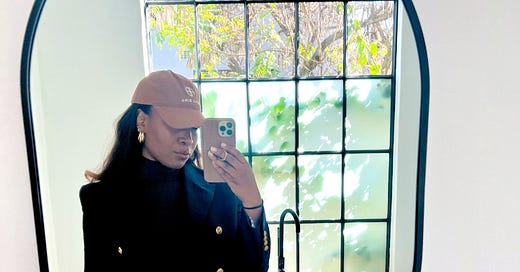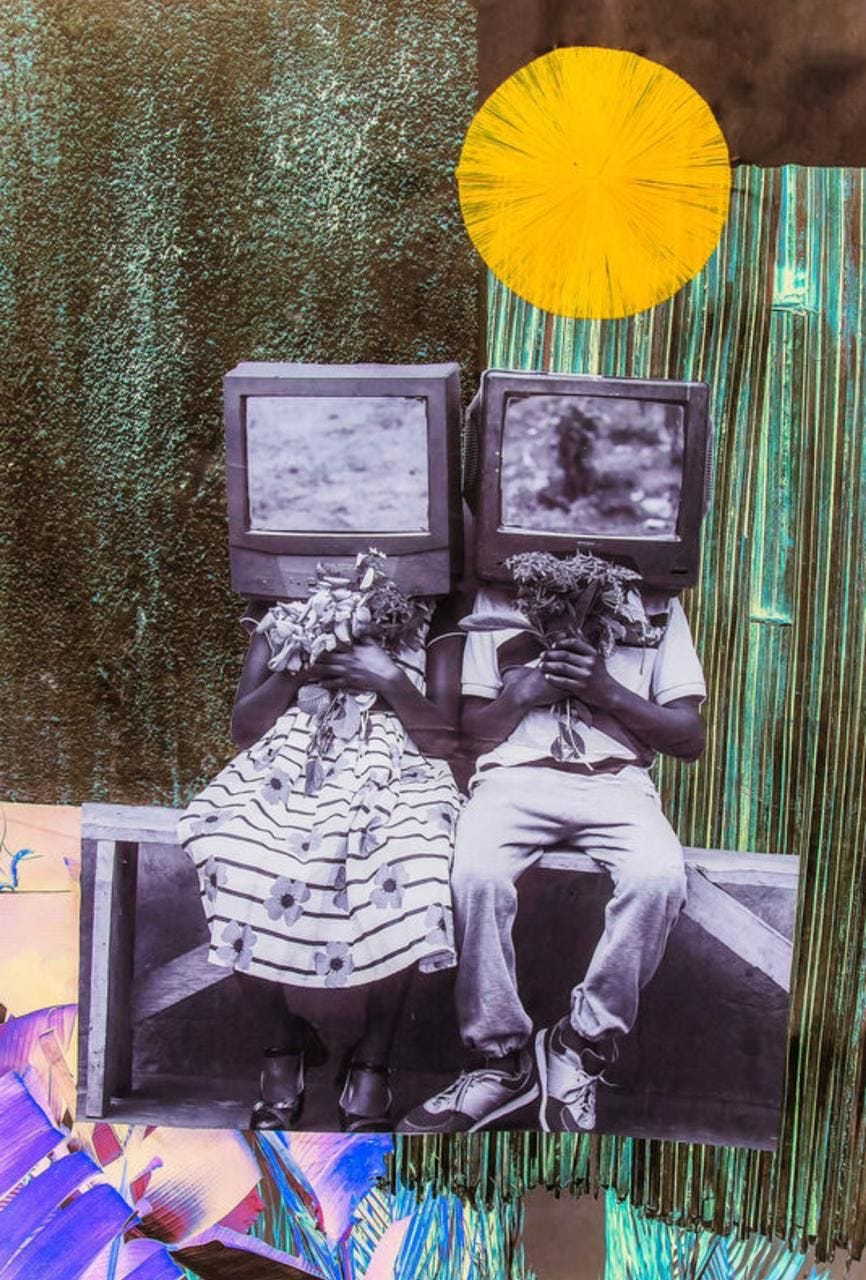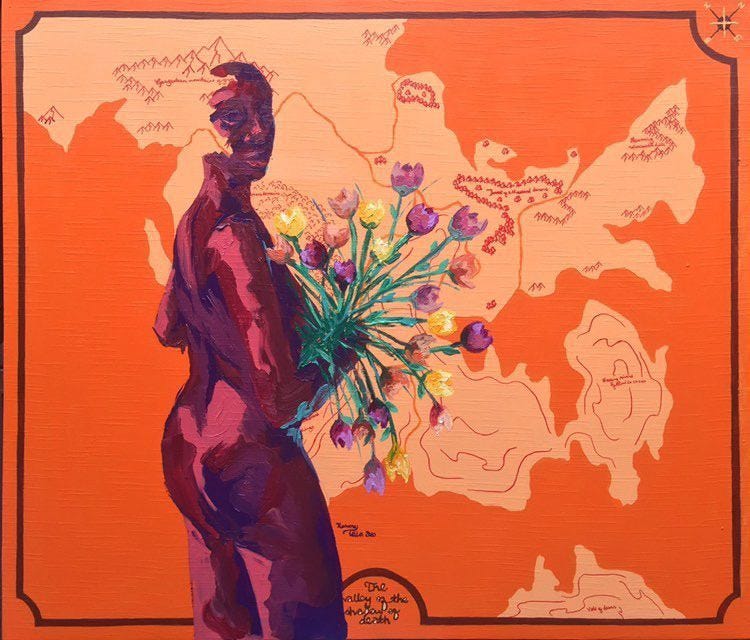From Vows to Self Value: My Journey Through Marriage, Divorce, and Self Discovery
My mom told me to marry a man that would be kind to me, take care of me and protect me - here’s how I f*cked it up and ended up leaving my marriage after one year.
During one of the last conversations I had with my mom before she passed away, she told me that there were three important things to look for when it came time to choose a husband: “Marry someone who will be kind to you, take care of you, protect and love you.”
The guidance was clear—and the instructions sounded simple enough to follow—yet there I was: 32, in divorce court battling my ex-husband over my finances after just one year of marriage. So how did I get here you ask?
The issue with my mom’s advice was that like many other young women—particularly African women—I lacked the necessary context to comprehend what genuine compatibility entails. I didn't grasp the significance of knowing (and valuing) yourself enough to prevent others from dictating your identity and what you’re worthy of. Moreover, I hadn’t been exposed to healthy relationships that prioritized genuine happiness over appearances—a cultural staple in Nigerian relationships. Our benchmark for a successful marriage is heavily influenced by conservative belief systems that are rooted in upholding “family, church & the status quo” instead of happiness and places a premium on endurance over enjoyment.
As women, we're often taught to carry a heavy burden of shame for our mistakes, especially in matters of love. And when the very thing you get wrong is what your dying mother warned you about in your final moments together, that weight is multiplied to infinity and beyond. That kind of shame is something most people would prefer to bury as deeply as possible for as long as possible. But as Oprah famously said, “life will tap you on your shoulder until it knocks you on your butt” and I was flat on my ass. In order to get up I had to face my shame head-on, suppressing it only breeds resentment which is the equivalent of taking poison and expecting the other person to suffer. Leaving my marriage was a bold act of self-love and I wasn’t going to reward that courageousness with bitterness.
While it feels easy to blame this on the fact that I was raised by a single mother, there are plenty of women with present fathers and positive male figures in their lives who, like me, have fallen for love-bombing and manipulation masked as emotional intimacy. Without an understanding of self and healthy relationship dynamics, women end up in unsatisfying relationships that chip away at their self-esteem and overall well-being.
In the early stages of the relationship (which started shortly after my mom’s death) that resulted in my short-lived marriage, I sensed deep down that I was doomed. Despite my mother’s wise words lingering in my mind, I found myself concocting creative narratives to justify staying in a toxic situation and drowning in shame because of it. I was so desperate to escape my grief that I ignored the red flags from my partner, and isolated myself from family and friends who voiced their concerns. As my sense of self slowly diminished, I found myself walking on eggshells in the name of maintaining peace. I realized the fairy tale romance we once shared was nothing but an illusion. The orchestrated displays of romance lacking substance, exaggerated attention to detail and emotional enmeshment served as deceptive smokescreens that would ultimately be used as tools to diminish my worth.
Despite the glaring red flags — such as the calculated and degrading stories about his “crazy” ex, gleefully disseminated by his team of chief enablers with surgical precision (trust me, been there), or the emotionally charged outbursts — it was easier to stick it out than face my own anxiety-fueled life choices and insecurity. But as my self-worth dwindled, I realized I was stuck in a cycle of seeking approval and validation, and it was making things even worse. At the time, my partner's constant nitpicking veiled as support made me feel confused and ashamed; but now, I know that he masterfully used my vulnerabilities as weaponry in the hopes that I’d be too insecure to leave. In the end, I walked away from that warped reality, but the damage to my identity had already been done. It was a painful lesson, but one that taught me the importance of listening to my intuition and valuing my own worth above all else.
When genuine self-love is absent, toxic people seize the opportunity to prey on your vulnerability, whether they be partners, friends, bosses, or even family. They relentlessly feed off your light to obscure their own darkness and feelings of inferiority because (to their benefit) they know you can’t see your own power. Consequently, you may find yourself trapped in a life that feels fundamentally flawed. Only by daring to embrace the unknown can you begin to confront the bitterness that threatens to consume and alter your identity.
My mother’s advice, though well-intentioned, arrived too late in life. By the time I met my would-be husband, I had already internalized years of harmful beliefs and lacked a true understanding of what reciprocal love and respect should look like in an intimate partnership. My dating experiences hadn’t prepared me for the mental anguish that comes along with toxic romance, nor did they equip me with the tools I needed to recognize harmful patterns.
Many women—myself included—have found themselves in relationships not because of their happiness or compatibility with a partner, but because they feel chosen. And for me, this mindset traces back to the significant void left by my father’s absence during my formative years. His inconsistent presence coupled with a sort of societal validation of his behavior set a precedent that I struggled to navigate. I watched as people often placed the blame for his absence on my mother and, at times, even on me. This dynamic led me to put men on a pedestal just because they were there, and pushed me to prioritize being married by my “sell-by” date (lol.) over my own wants, needs, and sanity. As the saying goes, “A bird in the hand is better than two in the bush.” But what happens when that bird turns and bites you, and you can finally see the situation for what it is? How do we reclaim our power and trust ourselves again?
It's a journey of confronting shame and rediscovering self-worth. As women, we deserve more than just being "picked”—we deserve to be truly seen, heard, and valued in our relationships. It’s critically important to trust yourself enough to walk away from a toxic situation even if it means you have to walk alone. Sure, we worry about being labeled as "damaged goods," fear the scarcity of finding someone else, and dread the idea of starting over, but these fears reflect our diminished sense of self-worth and self-belief—and we deserve better. And as for those who criticize you? Always remember that people feel triggered when you refuse to be ashamed of the things they were taught to be ashamed of. They resent your sense of entitlement and ability to make different choices. Most of all, they dislike your lack of consideration for their opinions, afterall— “Who do you think you are?” The fear of judgment can be paralyzing, but other people’s opinions don't define us, so focus on transforming your life while they stay the same.
“A divorced woman may be far more sincere and noble than many of her married sister who are perhaps living a lie” - Dr. Joseph Murphy
Being in a toxic relationship can narrow our vision of what’s possible—it’s like being trapped in a tunnel, unable to see beyond the confines of the current situation. We begin to accept unhappiness as a deserved reality simply because it reflects the choices we made when we weren’t loving ourselves enough, and convince ourselves that enduring pain within a partnership is better than being alone. You’re left with a choice between the pain of denial or the pain of growth, and only one of them will get you to where you want to be.
It’s not easy to break free from this sort of toxicity, but it is possible. It starts with recognizing our own value, being honest with ourselves about what we really want from our lives, and refusing to settle for relationships that make us feel small and unworthy. It requires trusting our inner voices above all others, and knowing that we are worthy of love, kindness, and respect. Above all, it means believing that there is something better out there.
By addressing the issues that led us into toxic relationships in the first place, we can attract higher-quality partners and experiences. It’s a scary process, but staying in a relationship that undermines your self-esteem is even scarier. It's okay to cry, to feel embarrassed, and to struggle with moving on, but it's also important to remember that we have the power to shape our own narratives. We can choose to focus on ourselves, to understand how we ended up in certain situations, and to work towards healing and growth. This kind of intentional self-work is hard, but it's the kind of challenge that yields transformation (as opposed to the hard work of maintaining the façade of your relationship, which leaves you unhappy and standing still). The more you get to know yourself, the closer you’ll be to living a life that’s aligned with your deepest desires and attracting the quality of relationship you know you deserve—two things that can’t happen if you stay where you are.
My mother's dying wish was for me to find a partner who would treat me with respect and love. However, without a clear plan or understanding of what I truly wanted for myself, I struggled to fulfill her desire. In hindsight, I realize that intention and self-worth are key in navigating relationships. I couldn't have followed her guidance, even if I wanted to, it’s the kind of advice that requires teaching and modelling, not just telling. And for that, I forgive both of us.
Mindful moment: “But we cannot simply sit and stare at our wounds forever” - Haruki Murakami
Reading Recc: “Life Visioning Purpose” by Michael Bernard Beckwith
Art Selection: Artwork selected by Temi Adeniji from her private collection








I’m just 24 and I’m glad I’m reading this now, thanks to ozzy etomi for sharing this beautiful piece on her story. Everything written here seems like it was written for me, I will be here time to time to digest this golden life saving piece. I wish you a very tasteful life Lola, thanks for the vulnerability and being a light in this dark world
Thank you for expressing clearly and beautifully all of the things we are too scared to admit to ourselves. I am glad I read this article.